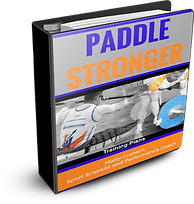What I Learned About Endurance Training After 2 Months in Scandinavia
- Matty Graham
- Jun 25, 2025
- 4 min read
Updated: Jul 6, 2025

Sweden and Norway consistently produce top-level endurance athletes across various sports such as running, triathlon, orienteering, speed skating and not to mention the domination of the winter sports of cross country skiing and biathlon.
I was lucky enough to spend February and March this year travelling, training, coaching (biathlon and cross country skiing), and racing in both countries.
During this time, I had the chance to experience their endurance culture up close.

Before I left NZ several people jokingly said "make sure you bring back all their training secrets."
Well, here they are.
Here are six things that really stood out to me:
1. They focus on the basics
First and foremost, there are no training secrets in Scandinavia. Honestly, you could cobble together most of a top-level training plan just by reading Norwegian sport magazines, newspapers or from media interviews not to mention the wealth of knowledge available from the amazing club coaches.
The general philosophy seems to be everyone knows what good endurance training looks like—and more importantly—they actually do it rather than searching for magic short cuts.
The focus is on doing the fundamentals well: consistent aerobic training, structured intensity sessions, balanced with recovery and one hell of a work ethic. Nothing mind blowing right.
2. Training is simple (but not easy)
Now aside from the in-session blood lactate monitoring and double threshold days which are both now common at elite levels in most countries. The majority of athletes follow a clear and simple model without those complexities.

Long, low-intensity aerobic sessions form the foundation of training. These are complemented by high-intensity interval sessions that are executed with focus and intent.
Again, this approach isn’t new—but it’s applied with consistency by all the up and coming athletes.
3. Good nutrition is just part of the culture
Nutrition for training isn’t treated like a restrictive science experiment. In both countries, there is a strong emphasis on fuelling for performance. Again, this not a new or mind-blowing concept but it always surprises me how often people are amazed by it.

Food is integrated into the training culture: long sessions often include breaks for Fika in Sweden (a traditional coffee and pastry stop) or trips to mountain huts that serve waffles, soup, or other hot food.
Eating is seen and embraced as part of the endurance training process.
4. Simplicity in sports nutrition
Whole foods are the foundation of athlete’s nutrition. There is some use of sports drinks and protein powders, but on the whole there is little emphasis on supplements or performance products as there are in other countries. Instead, the emphasis is on balanced, home-cooked meals with enough energy to support high-volume training.
Think a lot of; bread, oats, yoghurt, jam, fruit juice, bananas, pasta, meat, fish and potatoes. Again, nothing extraordinary right.

5. Aerobic training intensity is well controlled
From a young age, athletes seem to be taught how to pace themselves in low-intensity sessions. Large groups of mixed ages and abilities often train together at very conversational paces. The atmosphere is relaxed and social during these sessions, but the underlying purpose is clear: develop the aerobic base without unnecessary fatigue.
If you have read anything about the well-known “polarised training” model where approximately 80% of training is low intensity, with 20% high intensity then you will not be surprised by this at all. I think the biggest stand out to me was how widely known this concept is in the general population. Again, people know the basics of training and they are out there doing it.

Don’t get me wrong, they do train hard (very hard) as well and trust me you want to make sure you don’t get your days mixed up and end up in one of these groups on interval day? But they know how to do aerobic training very well so they can then perform the much talked about double threshold days on this base.
6. There’s no such thing as bad weather… only bad clothing
I’ve always liked this saying, but in Scandinavia they take it to the next level, it’s a lifestyle. I guess when your ancestors were the Vikings it is your blood or at least engrained into your culture.
Snowstorm? Rain? Gale-force wind? Doesn’t matter. The locals are out training, walking their kids to school, or sitting under a tree sipping coffee in -15°C like it’s no big deal.

The athletes are absolute pros at layering, changing or adjusting layers during the session and having a draw full of different weight gloves, hats and jackets etc for training sessions in different weather conditions. We spent a lot of time upgrading our gear at the Swedemount stores.
Bottom line: the weather conditions don’t get in the way. They just dress for it and get out there.
Final thoughts
After two months in Scandinavia, the main lesson I took away is that there are no real secrets and rather than searching for short cuts or silver bullets there is an endurance culture and work ethic where everyone right from the juniors ranks through to the Olympic athletes and even the masters are just out there doing solid endurance training consistently over time.
I think people often get overwhelmed with the conflicting information out there about training on social media but at the end of the day it is reassuring to realise that the key is to commit to the process, focus on consistency, and not overcomplicate things.
Take a leaf out of the Scandinavian training model and train regularly, fuel well, recover properly and then the results will come.
Need more help with your training?
Check out these different resources








.png)




.png)









Comments